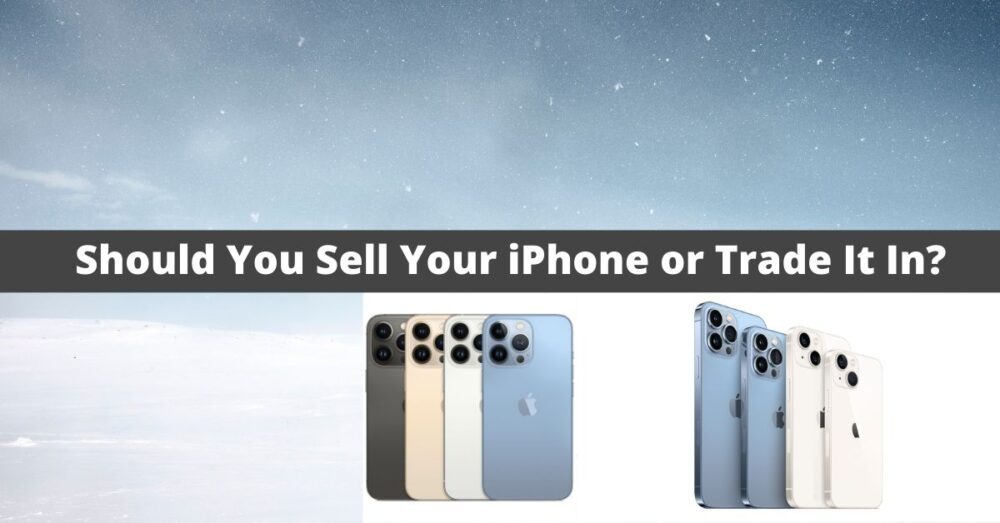With the onward march of smart technology, new Android and iOS devices are released with ever-increasing frequency – and we can’t get enough. Smartphone sales have more or less maintained at a steady 1.5 billion units a year since 2016. But getting a new phone means ditching the old one. The two main options for getting the most out of your old device are trading in or selling – but what are the advantages of each?
The Pros and Cons of Trading Your Phone In
Trading in your phone can often be the easiest route to getting a new phone, especially if your model is relatively new. You don’t have to worry about creating a listing with an online marketplace or figuring out how much to ask for it; the service you trade in with will already have worked out the pricing. You can also combine transactions into one, instead of having to go through several steps in order to afford your new device. With trading in, you simply hand your old phone over, then receive your new iPhone at a offset price.
However, the value of your phone as a part-exchange might be less than you would receive from selling on a second-hand market. If your iPhone is a particularly old model, it might barely make a dent in the cost of your new device – which can be disappointing and inconvenient. In some cases, your phone might even be too old to trade in, leaving you to pay full price for your new iPhone.
The Pros and Cons of Selling Your Phone
In contrast, selling your iPhone can grant you a better deal in many scenarios, at the potential expense of extra uncertainty and administration. Online phone buying services exist, which represent a swift way you can sell your iPhone 7 for cash. Online marketplaces are also ubiquitous, and make it incredibly easy for you to create a listing.
While you might not make much money from the sale of your phone, especially if it is older, control over the sale price can often mean you get a better deal than if you were to trade it straight in for the new model – effectively bringing the cost of a new model down even further.
But selling does come with its downsides. The market can be volatile, and there’s no guarantee that your phone will sell, even for a reduced price. If your phone does sell, you may be liable to post it off, and in some cases the buyer might pull out – requiring you to start the process all over again.
Ultimately, the decision is yours when it comes to what you do with your old device – but different methods can have different rewards. If your phone is aging a little, the convenience of trading may win out. But for phones of any other age or condition, private sale may well be the better route.

